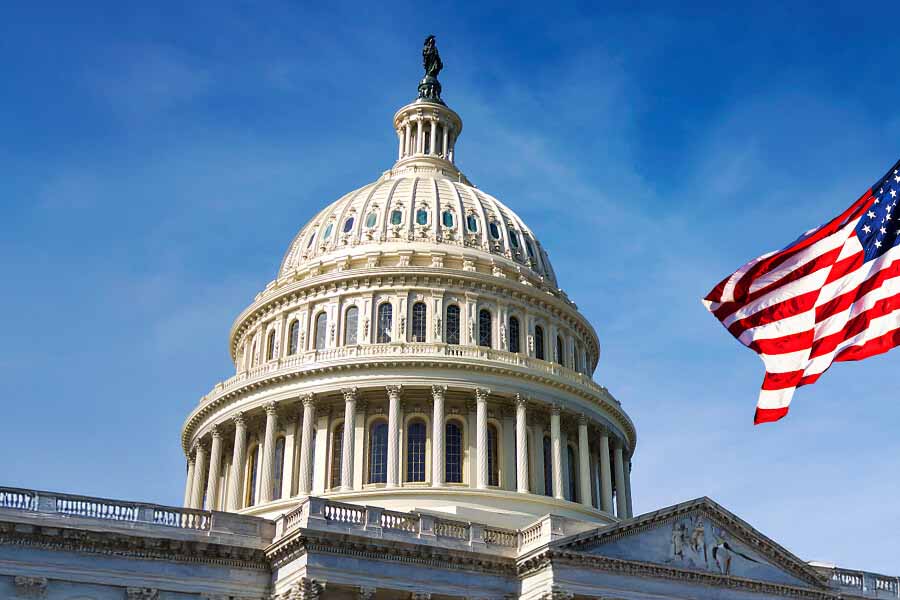
With growing national concerns over fraud that threaten the integrity of real estate transactions and consumer confidence, National Notary Association representatives joined federal and state officials and key trade organizations in Washington, D.C., to engage in discussions that reinforced a critical reality: Notaries are more important than ever in protecting the public from fraud at all levels.
Bill Anderson, Vice President of Government Affairs, and Brooke Merritt, Senior Manager of Policy Planning, met with the FBI’s Economic Crimes Unit and a coalition of real estate trade organizations to discuss ways to strengthen the role of Notaries in protecting consumers amid the rise of Notary impersonation fraud, seller impersonation deed fraud, and AI and deepfake fraud.
Over the past year, the NNA has collaborated with AARP, the American Land Title Association (ALTA), the Mortgage Bankers Association (MBA), National Association of Realtors (NAR), and Property Records Industry Association (PRIA) to develop comprehensive legislative policy recommendations aimed at combating deed fraud. This initiative culminated in a series of high-level discussions in Washington, DC, including a meeting with the FBI’s Economic Crimes Unit. Here are the key points from these meetings:
FBI/deed fraud coalition meeting: Strengthening notarial protections
The FBI reported that real estate fraud continues to increase, with total losses exceeding $50 billion since 2020. Criminal networks, including international crime rings, have been actively engaging in seller impersonation fraud, often exploiting Notaries in the process.
The coalition of trade associations joining the FBI recently published an issue brief outlining strategies to protect consumers and Notaries alike, outlining the following recommendations:
- Authorizing Notaries to use credential analysis and identity proofing for paper-based notarial acts.
- Mandating training for Notaries and other industry professionals on real property and elder fraud.
- Establishing county recorder notification systems to alert both property owners and Notaries when deeds are recorded.
- Implementing penalties for Notary impersonation.
- Strengthening Notary commissioning processes to prevent bad actors from entering the profession.
Anderson and Merritt emphasized the real risks Notaries face when encountering fraud, particularly from organized crime rings. While stopping a fraudulent notarization in the moment can be dangerous, the NNA proposed the creation of a clear and effective reporting process that allows Notaries to report fraudulent transactions before a deed is recorded.
NASS Winter Conference: Addressing deepfake threats & notarial integrity
Anderson and Merritt also attended the National Association of Secretaries of State (NASS) Winter Conference, where they addressed several emerging concerns, including the rise of deepfake technology in remote online notarizations (RON).
The increasing sophistication of AI-driven deepfake technology presents a significant challenge for Notaries conducting RON. The NNA continues to raise awareness and advocate for strong countermeasures, as outlined in its deepfake position paper. Issues discussed include:
- Fraud countermeasures and technology-based notarizations
- Apostilles and eApostilles
- Background screening requirements for Notary commission applicants
- Notarial fees, bonds, and commissioning issues
- Notary complaints, investigations, and administrative actions against Notary commissions.
These summits at the national level underscored an undeniable truth: Notaries are essential in the fight against fraud and consumer exploitation. As fraud schemes become more complex and technologically advanced, the role of Notaries continues to evolve.
Through continued collaboration with federal agencies, trade organizations, and state officials, the NNA remains committed to ensuring Notaries are equipped with the tools, training, and protections necessary to fulfill their vital role in safeguarding notarial transactions nationwide.